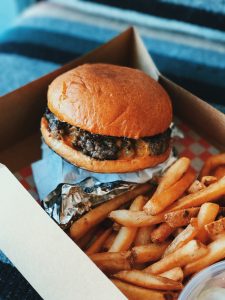What is inflammation? Am I suffering from it? Why Should I care? What Do I do about it?
One of the primary things I teach is the importance of eating anti-inflammatory foods, regardless of whether one is on a weight loss program or not. The quality of food that you eat can have a huge impact affecting your quality of life and ability to lose weight
What is inflammation?
So, what do I mean by inflammation?
“The word “inflammation” traces back to the Latin for “set afire.” In some conditions, like rheumatoid arthritis, you feel heat, pain, redness, and swelling. But in other cases — like heart disease, Alzheimer’s, and diabetes — it’s not so obvious. If you didn’t go looking for it with tests, you wouldn’t even know it’s there, read more.”
Am I suffering or at risk of inflammation?
-
There are different ways to measure inflammation including patterns of symptoms, blood tests
and bio impedance assessment.
Checkout my Health Profile Questionnaire measuring inflammation based on symptoms to see how you Score
GET YOUR INFLAMMATION SCORE and stay informed know on upcoming events, offers and receive helpful insights for a healthier & happier life.
[mc4wp_form id=”1192″]
If your score was greater than 30 you may be suffering from inflammation based on the Health Profile Measurement System based on the symptoms you have identified. If you have any questions on your results on the survey email me at info@drsherbovay.com
How to clinically measure inflammation
- Blood Test (measure for HsCRP) can be ordered either by a medical doctor or naturopath.
- BIA (Bio impedance assessment) which measures increased water retention in the extracellular space which is an indication of inflammation. As well I use BIA system on all my patients to measure how much fat they are losing as well as measuring water loss or retention. I can measure muscle mass to ensure that this is not impacted during my client’s weight loss program.
Why should I care about it?
Chronic inflammation contributes to many health issues, here’s just a few.
- Heart disease
- Arthritis
- Skin disorders
- Digestive upset
- Auto-immune diseases
- Asthma and Alzheimer’s/dementia
I know that sounds scary … but the good news is that much of it is either reversible or preventable. What are some of the early warning signs that you should look out for:
- Chronic stomach or digestion issues
- Persistent joint pain (fingers, knee, hip, shoulder for example)
- Muscle fatigue or slower recovery after a workout than in the past
- Persistent sinus, nasal congestion
- Mood swings and headaches
- Brain Fog
- Skin irritation and rashes
Did you know that Men with a waist measurement of over 40 inches and women with waist measurement of over 35 inches are at risk for increased inflammation due to belly fat?
There are several foods that contribute to the inflammatory response. You would be amazed how quickly your body heals once these foods are eliminated. Another bonus is it will make losing weight much easier. Targeting that belly fat that your body loves to hold onto.
What should I do about it?
- Do It Yourself
Try eating an anti-inflammatory diet for 30 days and directly measure the impact by redoing the Health Profile Questionnaire again in a month see how your score improves. You should also notice physical changes in health during this period.
- Seek Professional Help
Discuss it with your health practitioner, who understands inflammation to get support and guidance on making these dietary changes along with other health recommendations.
TIPS ON EATING AN ANTI-INFLAMMATORY DIET

Reduce / Eliminate the following foods
- Sugar
- Simple Carbohydrates (white bread, white rice, simple grains, pasta)
- Gluten (wheat), for some people all grains
- Dairy
- Processed Foods
- Trans Fats (great article on Trans Fats)
Replace with the following high nutrient foods:
Vegetables and Fruit in particular:
Dark leafy greens
Cruciferous vegetables (broccoli, cauliflower, Brussel sprouts, kale)
Berries
Healthy Fats
Olive Oil
coconut oil
Omega 3 (fish oil)
 Nuts and seeds
Nuts and seeds
Avocado
Proteins
Fish
Grass fed beef
Free range poultry
Herbs and Spices
Ginger
Turmeric
Garlic
Parsley
Rosemary
Basil
Thyme
The most common feed-back from my patients is how quickly their inflammatory symptoms improved after only a week on my program. Pain decreases/disappears, digestion improves, skin issues improve, congestion decreases/disappears.
Make the best investment in your health … because you really are what you eat!
